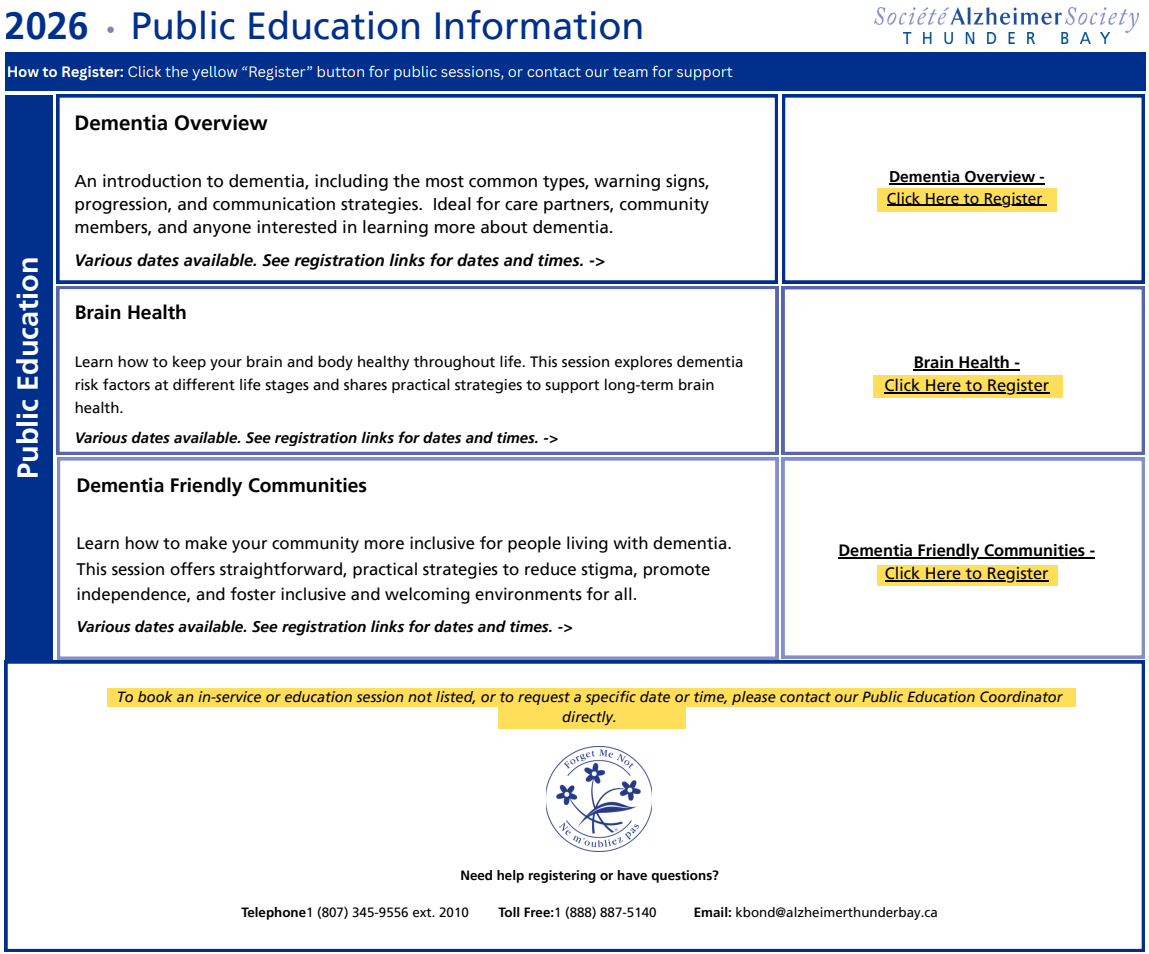Education Across the Region
Our education offerings are designed to inform, support, and inspire people living with dementia, care partners, professionals, and community members.

Public Education & Awareness
The Alzheimer Society of Thunder Bay offers a variety of educational opportunities for people living with dementia, care partners, health care professionals, and the broader community. Sessions can be tailored to suit specific needs, audiences, or topics, helping ensure that the information is meaningful and relevant.
Types of Education We Offer
Whether you're a caregiver, a community group, a health care professional, or someone simply interested in learning more, we offer education that meets your needs, and are tailored to fit your audience.
Popular Topics:
- Dementia 101: Understanding the disease and its warning signs
- Brain & Body Health: Reducing risk and promoting wellness
- Effective Communication Strategies
- Dementia-Friendly Communities
- Overview of Local Supports & Services
Specialized Training
GPA® (Gentle Persuasive Approaches)
GPA® is an evidence-based, interactive dementia care training that equips health care staff with practical, respectful, and person-centred strategies to support individuals living with dementia. Ideal for long-term care staff and professional teams.
Dementia Education - Online and In Person
Online Learning
The Alzheimer Society of Thunder Bay provides guidance on tools and resources that support safety and independence, including recommended devices and programs such as MedicAlert® Safely Home® and resources from alzstore.ca.
We also encourage continued learning through Alzeducate.ca, a free, self-paced online education platform developed by the Alzheimer Society of Ontario. Courses are available for caregivers, health care professionals, and community members, covering topics from understanding dementia to practical caregiving strategies.
Online Learning
Our team offers tailored education sessions to meet the needs of your group. Popular topics include:
- Dementia Overview: Understanding the Disease and Warning Signs
- Brain and Body Health: How to Lower your Risk
- Communication Strategies
- Creating Dementia-Friendly Communities
- Overview of Alzheimer Society of Thunder Bay and Region Services
How to Register
Click the poster below to view our current programs and registration details.
Click to view Public Education programs and registration information.

